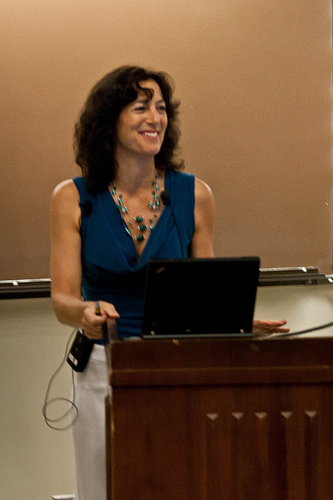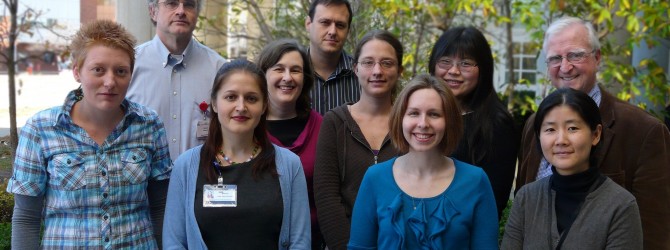2011: The BSF launched a Transformative Science Program (TSP) in 2010, adopting guidelines developed by the U.S.-based National Science Foundation (NSF) for transformative research as “driven by ideas that have potential to radically change our understanding of an important scientific concept, or lead to the creation of a new paradigm, or a new field of science.” Recognizing the immense promise of transformative science research, the BSF plans to give one or two awards in this program annually. A special scientific panel was convened to select the grantees, consisting of six senior scientists, three from Israel and three from the U.S. The panel was aided by external reviews from experts from around the world. In the first round of the TSP in 2010, out of 51 pre-proposals received, 12 were approved for submission of full proposals, and two of these were awarded grants.
One of the winning proposals is “Regulation of Alternative Splicing by Small Non-Coding RNAs,” from Professor Ruth Sperling of The Hebrew University and Professor Stefan Stamm at the University of Kentucky in Lexington. The research will explore how the genetic information in DNA is interpreted to form organisms. These researchers plan to investigate the role of short ribonucleic acids (RNA) molecules, which are directly made from DNA, in this process. The work should enhance understanding of the mode of genome (total hereditary information) processing, possibly opening a new chapter in the field of molecular biology. These findings could lead to a novel approach in designing therapies against human diseases, in general, and appetite-suppressing treatments, in particular.
 The second award went to Professor Yonina Eldar from the Department of Electrical Engineering at the Technion-Israel Institute of Technology in Haifa, and ProfessorAndrea Goldsmith from the Department of Electrical Engineering at Stanford University for their proposal, “Enabling New Radio Architectures and Network Protocols by Breaking the Nyquist Barrier.” The laws of Nyquist and Shannon currently govern the world of data communications. However, such networks suffer from variable and poor performance, low spectral efficiency, and high energy consumption. These researchers propose using novel sampling, communication, and signal processing ideas to overcome these problems. Their innovative approach could lead to wireless networks that can support more users and devices with greatly increased efficiency and performance. This work could have a far-reaching impact on the large range of applications based on wireless technology, including multi-media communications, sensor networks, biomedical devices, and automated highways.
The second award went to Professor Yonina Eldar from the Department of Electrical Engineering at the Technion-Israel Institute of Technology in Haifa, and ProfessorAndrea Goldsmith from the Department of Electrical Engineering at Stanford University for their proposal, “Enabling New Radio Architectures and Network Protocols by Breaking the Nyquist Barrier.” The laws of Nyquist and Shannon currently govern the world of data communications. However, such networks suffer from variable and poor performance, low spectral efficiency, and high energy consumption. These researchers propose using novel sampling, communication, and signal processing ideas to overcome these problems. Their innovative approach could lead to wireless networks that can support more users and devices with greatly increased efficiency and performance. This work could have a far-reaching impact on the large range of applications based on wireless technology, including multi-media communications, sensor networks, biomedical devices, and automated highways.
The second round of submissions to the Transformative Science Program has begun. Out of 53 pre-proposals received in 2011, eight collaborative teams were chosen to go on to the next stage and invited to submit full proposals.


